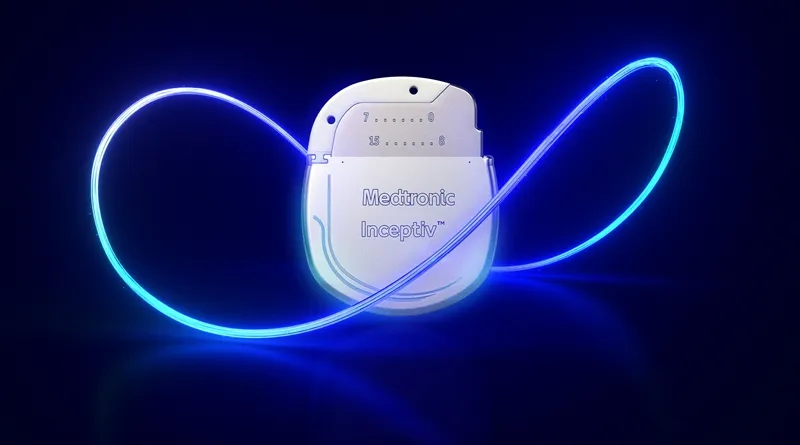From AI to smart devices: The technology trends that will transform healthcare in 2025

Healthcare is undergoing an unprecedented transformation thanks to technologies that are revolutionizing the way diseases are diagnosed, treated, and prevented. In Colombia, where timely access remains a challenge, these technological solutions are especially relevant in the management of chronic diseases such as diabetes, cancer, and cardiovascular disease, which already represent nearly 25% of total healthcare costs. According to projections by the Bank of the Republic, this percentage could reach 40% by 2030.
Medtronic, a global leader in medical technology, has identified five key trends that are revolutionizing global healthcare. These innovations, ranging from artificial intelligence to personalized medicine, are designed to improve patients' quality of life and optimize healthcare system resources.
1. Smart surgical instruments: from intuition to data New tools that combine sensors, cameras, and artificial intelligence already make it possible to record procedures from inside the body and analyze hundreds of surgeries. This helps standardize best practices, reduce errors, and improve surgeon training. In the future, these systems could even detect anomalies during surgery and provide real-time feedback.

The Da Vinci Xi robot allows the surgeon to magnify the organ in 3D. Photo: CTIC archive
AI is already a clinical reality. More than 1,000 FDA-approved medical devices use algorithms to assist in diagnoses. Medtronic, for example, has developed technologies that help identify colon polyps or detect cardiac arrhythmias using implantable monitors. These systems are expected to soon identify early signs of disease even before symptoms appear.

AI will change the healthcare sector. Photo: iStock
New therapies are changing the way we treat chronic pain and neurological disorders. An implantable device developed by Medtronic can block pain signals before they reach the brain, adjusting up to 50 times per second. This technology represents an alternative for the 90% of the more than 113,000 Colombians diagnosed with cancer each year who suffer from chronic pain at some point during their illness.

Spinal cord stimulator that blocks pain signals before they reach the brain. Photo: Medtronic
Medicine is beginning to recognize that symptoms and responses to treatment can vary between men and women. That's why Medtronic is promoting clinical studies focused on women, such as the SMART trial, which evaluates the performance of heart valves specifically in female patients.
5. Personalized medicine: each patient, a different solution Personalized medicine is enabling treatments tailored to each patient individually. Supported by surgical databases and algorithms, medical teams will be able to design therapies tailored to each individual's anatomy and unique needs.

Incorporating these technologies into the Colombian healthcare system represents an opportunity. Photo: iStock
"At Medtronic, we are committed to transforming healthcare in Colombia by developing innovative technologies that improve patients' lives. These five trends represent a unique opportunity to advance toward a more equitable, efficient, and personalized healthcare system," said Pedro Huertas, vice president of Medtronic Latin America and Central America.
eltiempo


%3Aformat(jpg)%3Aquality(99)%3Awatermark(f.elconfidencial.com%2Ffile%2Fbae%2Feea%2Ffde%2Fbaeeeafde1b3229287b0c008f7602058.png%2C0%2C275%2C1)%2Ff.elconfidencial.com%2Foriginal%2F55f%2F92e%2Fc95%2F55f92ec958ffe2e165791469192f4f84.jpg&w=3840&q=100)
%3Aformat(jpg)%3Aquality(99)%3Awatermark(f.elconfidencial.com%2Ffile%2Fbae%2Feea%2Ffde%2Fbaeeeafde1b3229287b0c008f7602058.png%2C0%2C275%2C1)%2Ff.elconfidencial.com%2Foriginal%2F45a%2F483%2Fa1f%2F45a483a1f10047515937a7bb0d34b6fa.jpg&w=3840&q=100)
%3Aformat(jpg)%3Aquality(99)%3Awatermark(f.elconfidencial.com%2Ffile%2Fbae%2Feea%2Ffde%2Fbaeeeafde1b3229287b0c008f7602058.png%2C0%2C275%2C1)%2Ff.elconfidencial.com%2Foriginal%2F0cc%2F1d8%2F337%2F0cc1d8337c864f3437ad038e678edf9f.jpg&w=3840&q=100)
